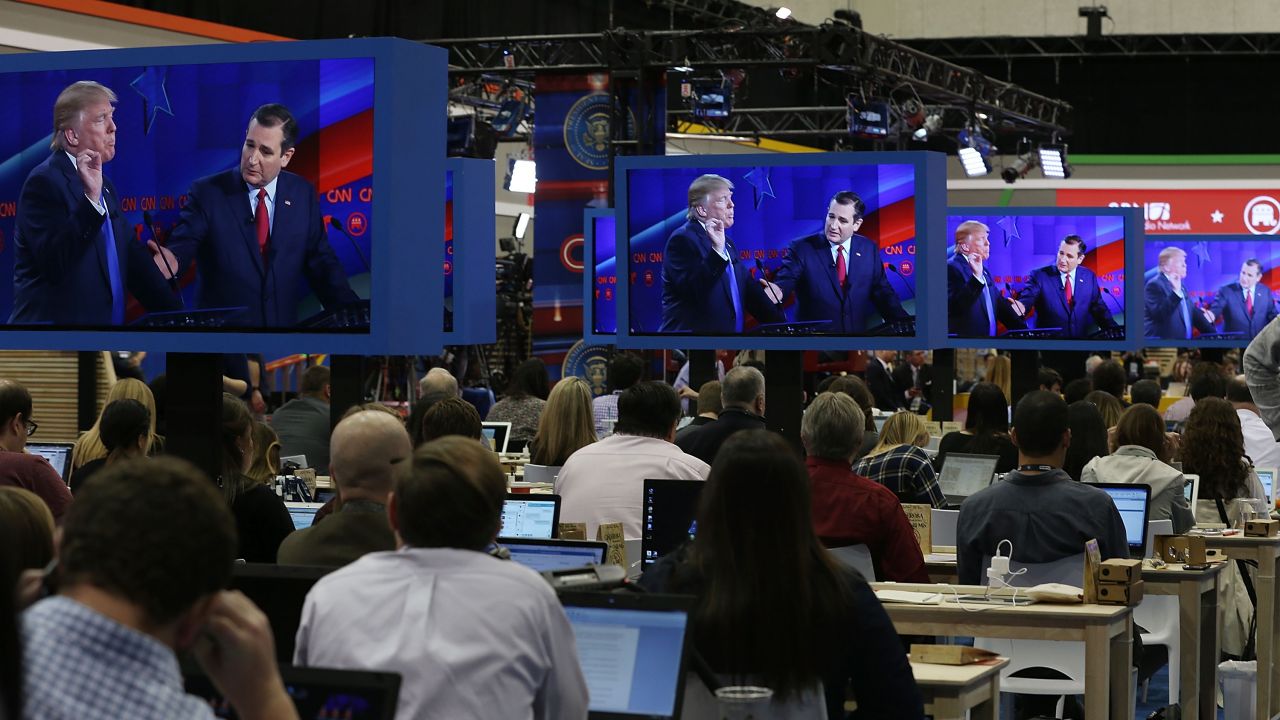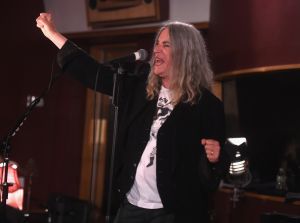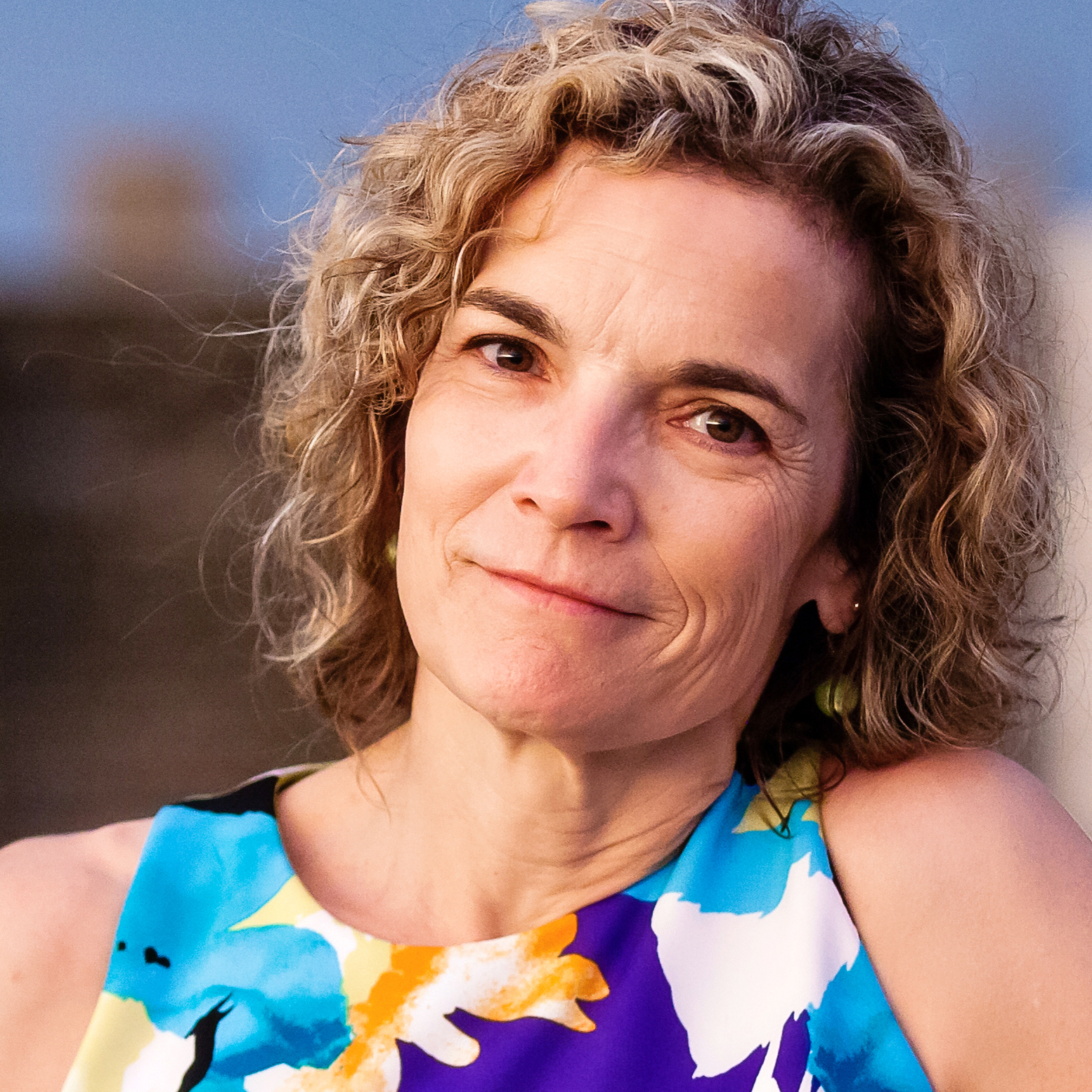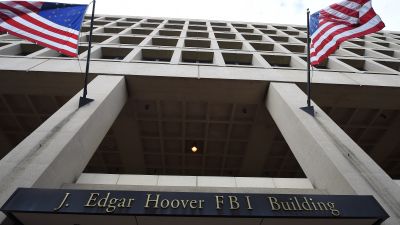
Exasperated by what he says is the media's moratorium on coverage of progressive viewpoints, Ralph Nader is seeking funding for a new organization to watch the watchdogs. (Photo by Joe Raedle/Getty Images)
Ralph Nader is seeking funding for a new organization to watch the watchdogs: a media that he says has become so focused on infotainment and celebrity that it’s not providing Americans the basic information they need to participate in democracy.
“Corporate commercial hedonism for maximum profit is a far more effective censorship of the media than tyrannical governments,” Nader told an audience of several hundred people gathered at Washington, DC’s Constitution Hall for the second day of his Breaking Through Power conference, which continues Wednesday and Thursday. Nader is calling his proposed new group Voices and said it will organize citizen advocates to demand better programming from local TV stations and “push for enlarging and enhancing space for serious content in all forms of media.”
A spokeswoman said Nader has identified a staff of writers, public interest lawyers, social media specialists and others for the organization and will launch when he acquires $1 million in funding to get Voices off the ground. The veteran activist’s call to action came toward the end of a day in which speaker after speaker described how alternative viewpoints have been muzzled by media conglomerates they described as monopolistic and motivated by commercial imperatives rather than public service.

Punk rock laureate Patti Smith performed her signature anthem “The People Have the Power” at the Nader event. (Photo by Jamie McCarthy/Getty Images for Electric Lady)
“There’s something worse than censorship, and that’s being ignored,” said singer Patti Smith, who described how an appearance in which she and other celebrities hoped to promote an anti-Iraq war event during former President George W. Bush’s administration was scrubbed because CNN decided to do wall-to-wall coverage of the Washington sniper crisis. “It was a real incident but not an incident that required 24 hours of coverage,” she said.
Many of the other speakers accused the media of pandering to viewers’ anxieties and preconceived notions rather than informing them. “One of the dilemmas of being a journalist today, especially for the TV people, is that people have to like you,” said longtime TV talk show host Phil Donahue. That, he noted, runs counter to the traditional role of a journalist, which requires that “you have to ask things in a way that people don’t like.”
The critique comes at a time of increasing media consolidation (the latest example being Gannett’s hostile bid to take over the Tribune newspapers) and massive job losses in the media, trends noted by a number of speakers. “The newspaper business is actually going away,” warned editorial cartoonist Matt Wuerker.
Former Federal Communications Commissioner Michael Copps described an equally grim trend in television journalism, estimating that the nation has “probably lost one-third of its newsroom reporters over the last 30 years.” The result, he said: “Investigative journalism hangs by the slenderest of threads. Infotainment has replaced serious journalism. And our civic dialogue has been seriously dumbed down.”
That makes is harder for people with alternative viewpoints to gain traction and for voters who want to make intelligent decisions about complex issues to get the information they need, a number of speakers noted. “People are not getting information in a way that brings them into the process,” said author John Nichols. “Our media system pushes people out of the process. Our media system tells people not to care.” He blamed the rise of Donald Trump on “the absolute crisis in our media, which covers celebrities over ideas and covers minutiae over the politics that matters.”
While the media are under increasing ideological scrutiny from groups on the left and right (“Who doesn’t blame the media when things go wrong?” quipped former New York City Public Advocate Mark Green) but Nader and a number of speakers at his event argued that conservatives have done a better job of pushing for their views to be represented in news columns and over the airwaves. “Imagine if the highways had conservative-only HOV lanes and the other side had to take the backroads,” said Green, describing what he sees as the ideological imbalance in the media today. Several speakers accused major media outlets of suppressing the voices of Iraq war skeptics to avoid losing access to newsmakers during the administration of former President George W. Bush.
During the course of the day, speakers offered a number of proposed solutions for countering what Mickey Huff, a San Francisco-based professor who directs Project Censored, described as a “corporate state media” that serves as “the PR arm of the plutocratic class.”
- Nader suggested citizen flash mobs surrounding TV stations right before the local news broadcast to demand more substantive shows.
- Nichols, elaborating on an idea first advanced by economist Dean Baker, reiterated his call for $200 “citizen vouchers” that taxpayers could direct to support independent media outlets of their choice.
- The Center for Digital Democracy‘s Jeff Chester argued that the time is ripe to call for a rollback of the FCC’s decision to let broadcasters profit from the auction of the public spectrum. “We’re at a moment when people are concerned about corporate giveaways,” said Chester. He believes the funds should be used to underwrite independent local media and that Democratic presidential candidate Bernie Sanders is in an ideal position to press the case at this summer’s Democratic National Convention. “Get Bernie to put in the platform that the spectrum is public property and we’re going to stop auctioning it off,” Chester said.
- Radio broadcaster Jim Hightower proposed that progressive media outlets “connect more. Coordinate a little bit. Cooperate. Collude even on occasion.” Doing so, he said, would increase the chances that the issues they care about and stories they cover gain national resonance.
In the end, “there is no easy solution,” warned Green. “The big solution is better education.”
That begins with activists educating themselves about the crisis facing the media, said former FCC Commissioner Nick Johnson who now teaches at the University of Iowa College of Law.
“Whatever your first priority,” he told the audience, “your second priority must be media reform.”




